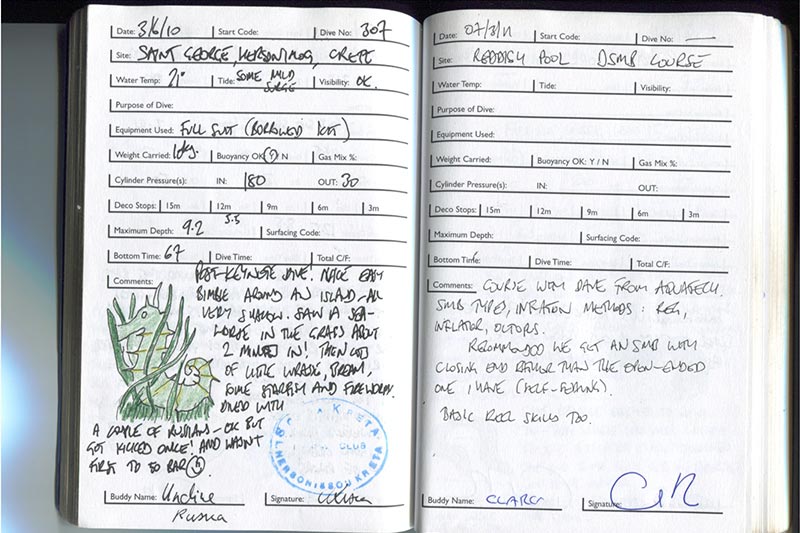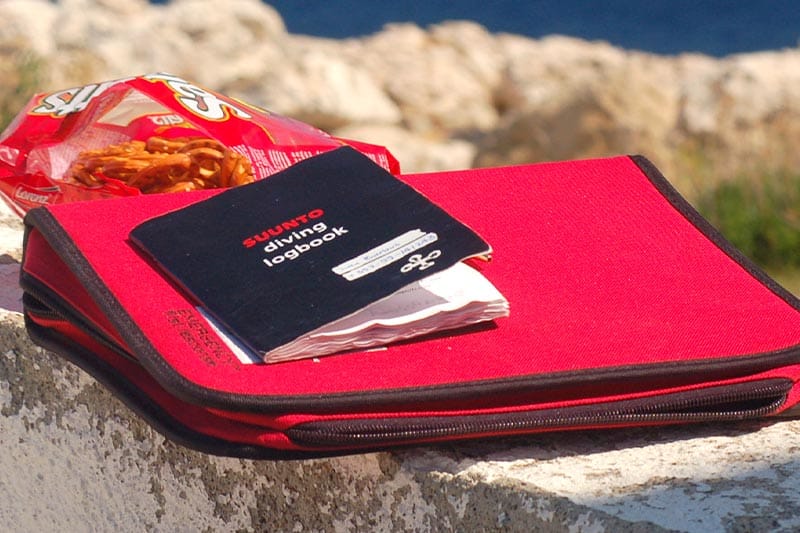2. How to fill your Dive Logbook?
2.1. Essential Data to Record in Your Scuba Diving Logbook
While your dive log book can be as detailed as you desire, certain facts shouldn’t be overlooked. These include:
- Dive Number: record the number of the dive in Open Water, remember confined water dives don’t “count”.
- Date and time: the date when you completed the dive.
- Location: geographic location, for example (Cozumel, Mexico)
- Dive site: write down the name of the dive site, you can add a detailed description
- Dive Buddy: note in your dive log the name of your dive buddy.
- Time in and time out: the time you entered and exited the water.
- Bottom Time: the overall duration you’ve been submerged underwater (including safety stops), which gets logged on your dive computer.
- Maximum Depth – The deepest point attained during the dive and the average depth maintained throughout the dive.
- Air consumption. It’s another interesting piece of information to include in your scuba diving logbook. It’s useful to remember how much air you had at the start to record your consumption after the dive. The truth is, that your air consumption will improve with practice, and noting the final pressure will help you track your progress with each dive.
- Air mixture. You can also note if you’re using a different air mixture than usual and specify the percentage of the blend.
- Cylinder capacity: Ending with 50 bar in an 80 cubic foot tank is not the same as in larger or smaller tanks, nor is the weight you carry.
- Weight carried. It is about your ballast.
2.2. Other interesting information you can note in your dive logbook
Underwater visibility during the dive.
Type of dive: whether it was from a boat or shore.
Attire used: wetsuit, drysuit, among others.
Water conditions: description of how the water was, whether it was calm, choppy, etc.
Post-dive notes: additional observations or experiences during the activity.
Equipment details: specifications of the gear used, such as fins, mask, regulator, etc.
Personal feelings and experiences: sensations during the dive, challenges faced, and lessons learned, among other emotional and experiential aspects.









